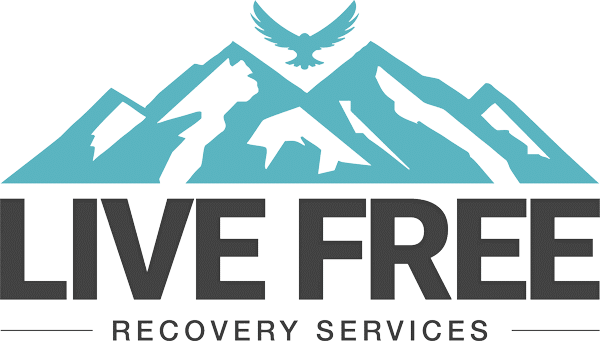Long-term rehab is the most hands-on approach to overcoming your strongholds. For individuals struggling to kick addictions, long-term rehab provides all the care and detailed therapy to treat even the most extreme cases.
If traditional therapy is proving ineffective, long-term addiction treatment programs may be the right choice for you. Also, if you have yet to enroll in any treatment programs, extended therapy is still the best solution for addiction. All the answers to how and why long-term rehab is recommended lie in the information below.

Table of Contents
What is Long-Term Rehab?
Extended rehab programs take place over a period of three to twelve months rather than other shorter-term therapy options. Long-term inpatient rehabs are rehab facilities that provide substance abuse treatment over a longer period of time. Typically, patients spend an average of three to six months in long-term rehab centers. However, your designated therapy time can be longer or shorter based on your individual needs and each person entering a treatment center has a unique set of issues, and concerns.
Regardless of how long your therapy lasts, there is no shame in spending an extended time in long-term rehab. Many patients opt to spend up to a year or even longer in long-term rehab simply to ensure a full recovery. They may also discuss aftercare plans for when treatment comes to an end.
What Quality Treatment Can You Expect in Extended Therapy?
The majority of long-term therapy takes place at an inpatient facility where your progress can be monitored around the clock. With Live Free Recovery, you can expect the highest quality care and complete clinical support for up to 5 months. Furthermore, Live Free Recovery goes the extra mile to ensure permanent sobriety by offering full support in stand-alone sober living.
Collectively, you can expect more than a year of therapeutic assistance in long-term drug rehab from a team of dedicated drug and alcohol treatment specialists. This is to ensure your safety and the preservation of your recovery throughout the process. Long-term therapy is labeled as such because of these meticulous processes that are to be mentioned in this type of therapy. Long-term rehab also helps individuals with a co-occurring disorder or dual diagnosis (when a mental health disorder occurs with addiction).
How you react and progress at each stage of long-term therapy determines how long you will remain in it. Listed below are a few of the benefits you can expect from long-term drug rehab.
Detoxification Made Easier
The introductory stage of extended care consists of primarily cleansing you of your substance addiction. This phase is intended primarily to remove the cravings and withdrawal symptoms associated with your dependency. It is critical to address addiction and co-occurring disorders concurrently.
This process can be the most difficult phase of the entire process. But with the compassionate guidance and observation of medical professionals at Live Free Recovery, this transition is made much easier. This initial stage of long-term therapy is among the many reasons that inpatient care is necessary. Attempting detox on your own can be miserable. But with Live Free Recovery, this process can be easily achieved and even enjoyable.
Individual Attentiveness
Among the greatest and most important benefits of long-term rehab is consistent individual coaching from a friendly therapist. Rather than facing your struggle alone, a therapy coach will be there to remind you that you’re in this together.
One of the biggest dangers to anybody battling addiction is the feeling of loneliness. Drug addiction or alcohol addiction significantly affects a person’s mental health. Attempting to quit alcohol or drug use alone especially poses a significant risk to yourself. Live Free Recovery helps you rise above discouraging depression and suicidal withdrawal symptoms that can be overwhelming when faced alone.
Establishing Good Habits

Another reason for the minimum 3 month period for extended rehab is the development and application of newly-formed habits. While studies cite it takes 21 days to develop a new habit, further studies indicate it takes beyond 2 months for new behaviors to become automatic.
A primary cause of relapse is not having an established schedule or good habits to replace your addictive indulgences. That’s where long-term rehab excels the most. With the daily coaching of a therapeutic specialist, you can instill an organized schedule and good habits in your life.
It’s not just about filling time. It’s about filling that time with work, activities, and hobbies you enjoy. A trained specialist will help you fill that void of your former habits with the joys you’ve always dreamed of.
Friendly Support Groups
Long-term addiction recovery programs provide more than just the vital support groups of a team of loving therapists. You also gain imminent support from newly formed friendships in sobriety.
Live Free Recovery understands you need more than just the friendships of a caring therapist. You also need the friendships of others who have been exactly where you’re at. The close bonds of like-minded individuals with similar sobriety goals can reinforce your strengths and habits learned in long-term rehab. These friendships can be all the encouragement you need to keep you focused and determined in your sobriety goals.
A New Life
The discouragement and struggles of the addictive lifestyle always conceal the greater joys of sobriety. From physical attributes to mental attributes, sober living spawns an entirely new world for someone who has been subdued beneath the bonds of addiction.
Live Free Recovery will help you break these bonds so that you can know the freedom beyond your strongholds. With the help of a team of sympathetic professionals and newfound friendships in sober living, you’ll have a new life. It’s not easy to overcome these mental and physical dependencies, but when you do it’s an entirely new world and life of sheer freedom.
Medications
Under medical supervision, you may be administered medications at your doctor’s discretion. Some addictions require medication to gradually wean you off the original stronghold. This is because some substances destabilize neuronic activity so drastically
Benzo addiction, for example, is mentally and physically fatal to quit cold turkey and requires other counteractive drugs to naturally stabilize the chemical makeup of your body. Depending on the severity of your addiction, doctor-recommended medications are intended to help you cope with withdrawal symptoms.
Withdrawal symptoms are a primary reason many people struggle to remove substance abuse from their lives. The medical administration and supervision of medications may be the step you need to get over your addiction hurdles.
Which Types of Therapy are involved in Long-Term Therapy?
Long-term therapy at Live Free Recovery opens the door to several more effective addiction treatment solutions. There are many types of treatment but the only way to know which treatment is the most applicable to your struggle is to contact a medical expert or healthcare provider today. Opening up to an addiction evaluation expert about any of the following treatment options is the first best step to a free life in sobriety. This will also help assess the length of stay and the level of care assessed by the treatment team and a person’s needs. Different approaches to treatment are offered in either an outpatient treatment or inpatient treatment facility, but long-term residential treatment has been shown to be more effective than short-term residential rehab programs.
For some individuals who have suffered from drug or alcohol addiction for a long time, a more extensive treatment plan is necessary for relapse prevention. Short-term residential drug and alcohol rehab generally lasts two to three weeks or less.
Cognitive-Behavioral Therapy
Cognitive function pertains to the natural muscle and mental impulses of addictive tendencies as equally as it pertains to vehicular operations. Think of your body as a car with gasoline. A car runs by turning burning gasoline heat into energy that allows the car to run the motions of its many running parts.
In the mind of a drug or alcohol abuser, their minds and bodies ‘require’ the gasoline of substance use to function. In essence, substance abuse has tricked the abusers’ mind into thinking that they need something that they don’t.
Without the ‘fuel’ of substance or alcohol abuse, extremely discomforting mental and physical cravings are triggered. Substance use disorders require individualized treatment that addresses the symptoms and underlying causes of addiction.The good news is a cognitive-behavioral therapy specialist can retrain your thoughts and cravings through a proven scientific process.
Many describe their experiences in CBT therapy to be relaxing and liberating. Talk to a specialist at Live Free Recovery to learn more.
Motivational Therapy
Motivational therapy can be the single greatest tool in preventing relapse. People often falter in their recovery because they don’t have the proper motivational company. Having the bond of an entire team of caring experts and friendships in therapy will continually remind you why your sobriety is so important. Motivational therapy in long-term rehab will be your anchor amid otherwise trying times.
Family Therapy
Caring and non-judgemental family impact statements can be a surprisingly great introduction to your addiction remedy. Attending group therapy with the companionship and encouragement of your closest relatives is an uplifting and enlightening experience. This could be the first step in establishing true clarity in your road to sobriety. You and your family members or loved ones will be equipped with relapse prevention techniques with the most important support group you could have, family.
Dialectical-Behavioral Therapy
DBT therapy is a good method to treat addictions rooted in personality disorders that are beyond your control. It’s possible to be unaware that your addiction stems from uncontrollable mental or physical disorders. Getting to the root of your addictions with DBT could be the greatest way for your doctor to map your recovery path.
Treating addictions stemming from personality disorders completely alters the trajectory of your therapy. If you think your addictions could be as a result of another disorder.
Freedom Is Knocking
Live Free Recovery lives true to its name, knocking on the recovery door that only you can open by reaching out now. Taking that step in this moment will show you how free you truly can be from your addictions, your pain, and your struggles. The road to enlightenment and freedom begins with a single call. Don’t hesitate. Break the bonds of addiction and learn to live free today at Live Free Recovery.
Published on: 2022-04-12
Updated on: 2024-06-26
